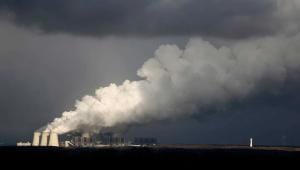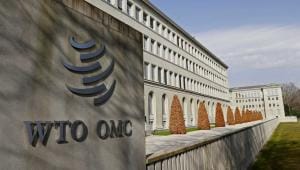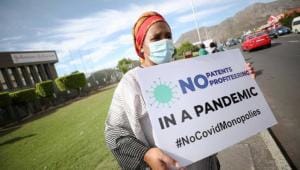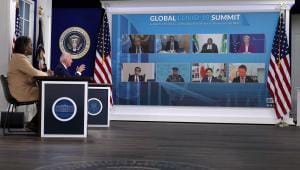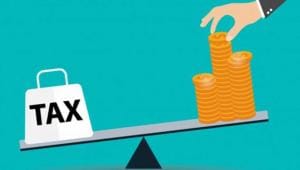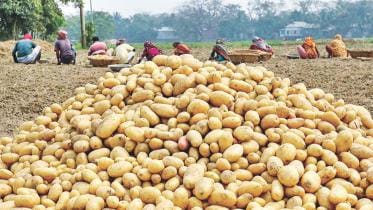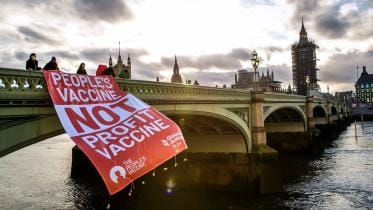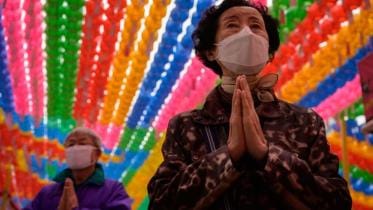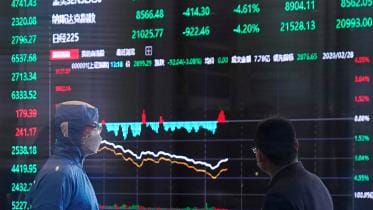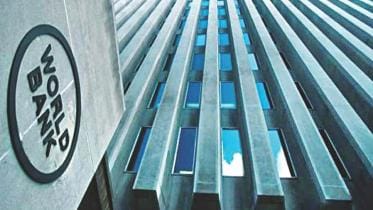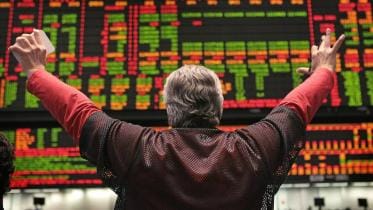War or Peace, Barbarism or Hope?
The spectre of “stagflation” threatens the world once again. This time, the risk is the direct consequence of political provocations and war.
3 April 2022, 18:00 PM
Climate Injustice at Glasgow Cop-Out
The planet is already 1.1 degrees Celsius warmer than in pre-industrial times. July 2021 was the hottest month ever recorded in 142 years. Despite the pandemic slowdown, 2020 has been the hottest year so far, ending the warmest decade (2011-2020) ever.
24 November 2021, 18:00 PM
WTO finished without TRIPS waiver
Quickly enabling greater and more affordable production of and access to Covid-19 medical needs are urgently needed in the South.
21 November 2021, 18:00 PM
The Carbon Tax is Overrated
Addressing global warming requires cutting carbon emissions by almost half by 2030! For the Intergovernmental Panel on Climate Change (IPCC), emissions must fall by 45 percent below 2010 levels by 2030 to limit warming to 1.5 degrees Celsius, instead of the 2.7 degrees Celsius now expected.
15 November 2021, 18:00 PM
Bleak Prospects for Least Developed Countries
“The outlook for LDCs is grim.”—the latest United Nations (UN) assessment of the prospects for the least developed countries (LDCs) notes recent setbacks without finding any silver lining on the horizon.
26 October 2021, 18:00 PM
Better late than never, but act now
The world should now be more aware of the likely Covid-19 devastation unless urgently checked. Last week, the World Health Organization (WHO) announced a USD 8 billion plan to quickly vaccinate many more people to expedite the end of the pandemic.
15 October 2021, 18:00 PM
Biden disappoints: Must do more, not less
US President Biden’s earlier support for a vaccine patent waiver raised hopes for his summit more than a week ago. However, it proved disappointing, not only for efforts to end the pandemic, but also for US leadership in these challenging times.
2 October 2021, 18:00 PM
Progressive taxation for our times
As developing countries struggle to cope with the pandemic, they risk being set back further by restrictive fiscal policies. These were imposed by rich countries who no longer practice them, if they ever did. Instead, the global South urgently needs bold policies to ensure adequate relief, recovery and reform.
25 September 2021, 18:00 PM
The vaccine apartheid must end
Vaccine costs have pushed many developing countries to the end of the Covid-19 inoculation queue, with most low-income nations not even lining up. What’s worse, less vaccinated poor nations cannot afford fiscal efforts to provide relief or stimulate recovery—let alone achieve Agenda 2030.
21 September 2021, 18:00 PM
Looking back: How prioritising profits reversed health progress
Instead of a health system striving to provide universal healthcare, a fragmented, profit-driven market “non-system” has emerged in recent decades. The 1980s’ neo-liberal counter-revolution against the historic 1978 Alma-Ata Declaration is responsible for this.
26 August 2021, 18:00 PM
Central banks must address pandemic challenges
Hopes for an inclusive global economic recovery are fast fading. As rich countries have done little to ensure poor countries’ access to vaccines and fiscal resources, North-South “fault lines” will certainly widen.
5 August 2021, 18:00 PM
Beware UN food systems summit trojan horse
Undoubtedly, the world needs to reform existing food systems to better serve humanity and sustainable development. But the United Nations World Food Systems Summit (UNFSS) must be consistent with UN-led multilateralism.
1 August 2021, 18:00 PM
End vaccine apartheid before millions more die
At least 85 poor countries will not have significant access to coronavirus vaccines before 2023. Unfortunately, a year’s delay will cause an estimated 2.5 million avoidable deaths in low and lower-middle income countries.
23 March 2021, 18:00 PM
Intellectual property cause of death, genocide
Refusal to temporarily suspend several World Trade Organization (WTO) intellectual property (IP) provisions to enable much faster and broader progress in addressing the Covid-19 pandemic should be grounds for International Criminal Court prosecution for genocide.
12 February 2021, 18:00 PM
Nothing to learn from East Asia?
Covid-19 infection and death rates in the Western world and many developing countries in Asia and Latin America have long overtaken East Asia since the second quarter of 2020.
22 January 2021, 18:00 PM
2021: Year of living dangerously?
Goodbye 2020, but unfortunately, not good riddance, as we all have to live with its legacy. It has been a disastrous year for much of the world for various reasons, Elizabeth II’s annus horribilis. The crisis has exposed previously unacknowledged realities, including frailties and vulnerabilities.
17 January 2021, 18:00 PM
World Bank urges governments to guarantee private profits
The World Bank has been leading other multilateral development banks (MDBs) and international financial institutions to press developing country governments to “de-risk” infrastructure and other private, especially foreign investments.
29 November 2020, 18:00 PM
Covid-19 compounding inequalities
The United Nations’ renamed World Social Report 2020 (WSR 2020) argued that income inequality is rising in most developed countries, and some middle-income countries, including China, the world’s fastest growing economy in recent decades.
22 November 2020, 18:00 PM
Is development for the World Bank mainly doing business?
The World Bank has finally given up defending its controversial, but influential Doing Business Report (DBR). In August, the Bank “paused” publication of the DBR due to a “number of irregularities” after its much criticised ranking system was exposed as fraudulent.
16 November 2020, 18:00 PM
Milton Friedman versus stakeholder capitalism
Milton Friedman was arguably the most influential economist of the second half of the 20th century, associated with promoting “neo-liberal”, free-market, shareholder capitalism.
7 November 2020, 18:00 PM




